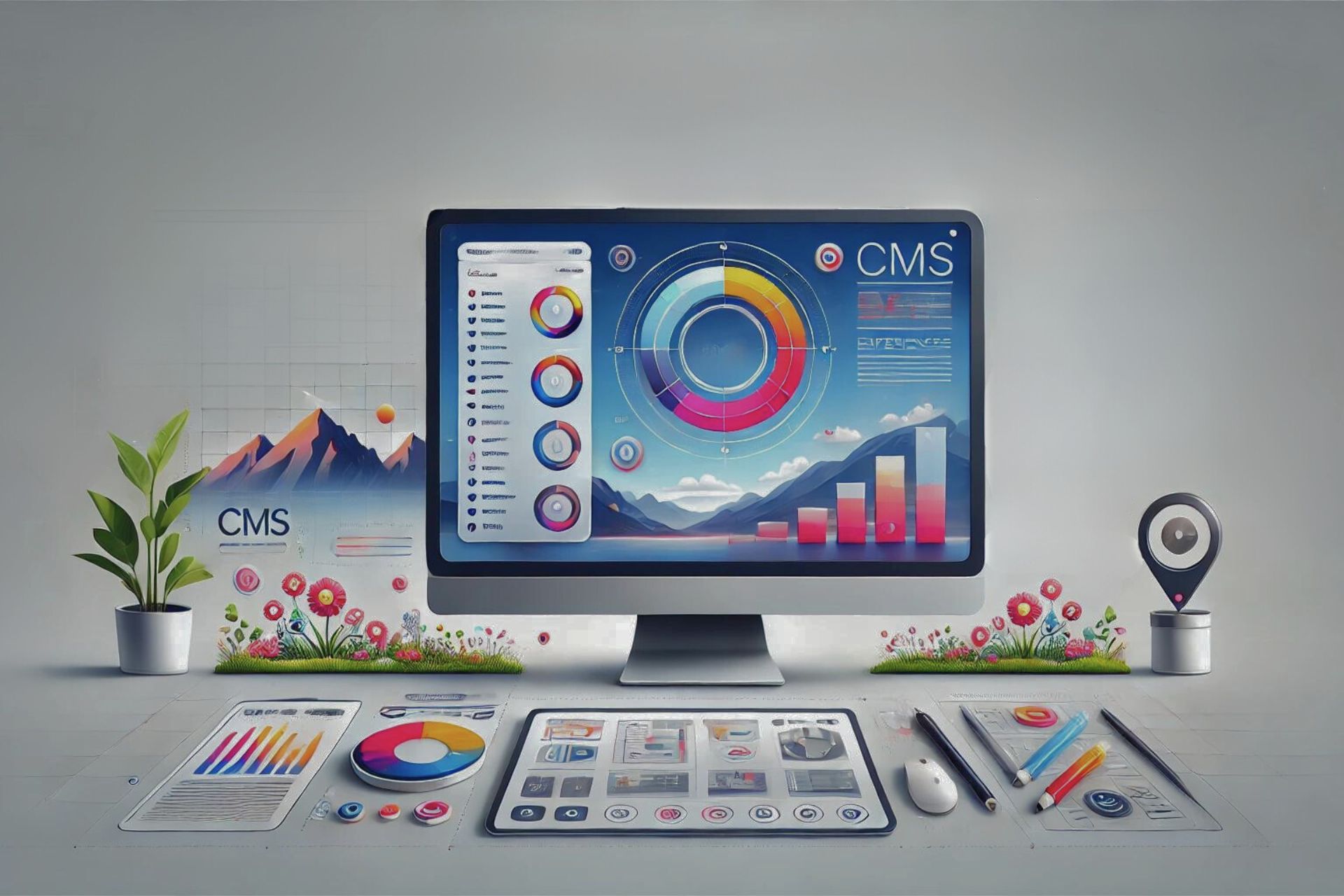Future-Proofing Your Business with CMS-Driven Experiences

In a world where digital trends can reshape industries overnight, adapting swiftly is key to maintaining a competitive edge. A powerful Content Management System (CMS) isn't just a tool—it's a catalyst for transformation. By optimizing content creation, enhancing user interactions, and fortifying security, a modern CMS helps businesses not only keep up but lead the charge. This blog will uncover how leveraging a sophisticated CMS can empower your business to thrive in the ever-evolving digital landscape.
Understanding CMS and Its Evolution
A Content Management System (CMS) is a software tool crafted to simplify the creation, management, and modification of digital content. Initially, CMS platforms were simple, focusing on basic website content management. However, with the rise of mobile devices, social media, and omnichannel marketing, CMS platforms have evolved significantly. Today’s CMS solutions are versatile, offering features like headless architecture, AI integration, and cloud-based deployment, making them indispensable tools for modern businesses.
Benefits of a Modern CMS
- Flexibility and Customization: Modern CMS platforms offer unparalleled flexibility, allowing businesses to deliver personalized content across various digital channels. Whether it’s a website, mobile app, or social media platform, a CMS can tailor content to meet the specific needs of each audience.
- Enhanced User Experience: A CMS enables businesses to create seamless and engaging digital experiences. Features such as intuitive drag-and-drop interfaces, adaptable design templates, and integrated analytics tools simplify the creation of content that engages users effectively.
- Scalability: As your business grows, so do your content management needs. A scalable CMS ensures that your digital infrastructure can expand without compromising performance. Cloud-based CMS platforms, in particular, offer easy scalability and flexibility.
- Improved Collaboration: A CMS enhances team collaboration by offering a centralized hub for content creation, editing, and publishing, thereby minimizing bottlenecks and ensuring alignment among all members.
- Security and Compliance: With growing privacy concerns and stringent regulations, security is paramount. Modern CMS platforms are equipped with advanced security features, including encryption, single sign-on (SSO), and compliance with data protection laws.
Future-Proofing Your CMS
To ensure your CMS remains relevant in the future, consider the following strategies:
- Embrace Headless CMS: A headless CMS separates the frontend and back end, allowing content to be delivered across multiple channels without redesigning the entire system. This flexibility is crucial for adapting to new digital trends and technologies.
- Integrate AI and Machine Learning: AI-powered CMS platforms can automate routine tasks, enhance content personalization, and provide valuable insights into user behavior. For example, AI can help with content tagging, SEO enhancement, and generating tailored content recommendations.
- Choose Cloud-Based Solutions: Cloud-based CMS platforms provide a range of benefits, such as automatic updates, minimized IT dependency, and improved collaboration. They also deliver strong security features, ensuring content remains consistently accessible. They also provide robust security features and ensure your content is always accessible.
- Focus on Omnichannel Delivery: Today’s consumers interact with brands across multiple channels. A future-proof CMS should support omnichannel content delivery, ensuring a consistent and cohesive experience across websites, mobile apps, social media, and other digital touchpoints.
- Prioritize Security: As cyber threats become more sophisticated, it’s essential to have a CMS that prioritizes security. Look for platforms that offer features like advanced firewall APIs, encryption, and regular security updates to protect your data and maintain compliance with regulations.
Customizing Your CMS for Maximum Impact
While off-the-shelf CMS platforms offer a range of features, customizing your CMS can provide significant advantages. By tailoring the CMS to your business needs, you can enhance operational efficiency and ensure the platform aligns with your workflows and processes.
1. Tailored Content Templates: Custom content templates can ensure consistent branding and simplify the content creation process. This particularly benefits businesses with unique design requirements or complex content strategies.
2. Workflow Optimization: Custom workflows can be designed to match your organization’s operational dynamics. This ensures that content moves smoothly from creation to publication, reducing delays and improving overall efficiency.
3. Integration with Third-Party Tools: A customized CMS can be integrated with other essential tools and platforms, such as CRM systems, marketing automation software, and analytics tools. This integration enables seamless data flow and enhances your ability to deliver personalized and data-driven content.
Preparing for the Future of CMS
The CMS landscape is ever-changing, so businesses need to stay updated on the latest trends and technologies. Here are a few predictions for the future of CMS:
- Rise of Hybrid CMS: Hybrid CMS platforms combine the best features of traditional and headless systems, offering flexibility and ease of use. They appeal to developers and content creators, making them ideal for larger organizations.
- Expanded AI Capabilities: AI will play an increasingly important role in CMS platforms, with capabilities extending beyond content generation to include image and video creation, automated workflows, and advanced analytics.
- Enhanced Workflow Automation: Future CMS platforms will offer more sophisticated automation tools, simplifying tasks like content review cycles, editorial approvals, and publication scheduling.
- Focus on Intranet and Knowledge Management: As businesses recognize the value of internal content, future CMS platforms will offer enhanced features for managing intranets and knowledge bases, improving internal communication and collaboration.
Strategic Imperative for Your Business
Future-proofing your business with a CMS-driven experience is no longer optional—it’s a strategic imperative. By embracing modern CMS features like headless architecture, AI integration, and cloud-based deployment, businesses can stay ahead of the competition and deliver exceptional digital experiences. Investing in a customizable, scalable, and secure CMS will ensure your organization remains agile and ready to meet the evolving demands of the digital landscape.
Ready to scale your digital experiences? Check out our guide, "Scaling Digital Experiences: A Strategic Guide to CMS Solutions for Enterprise," and transform your content management strategy today.




